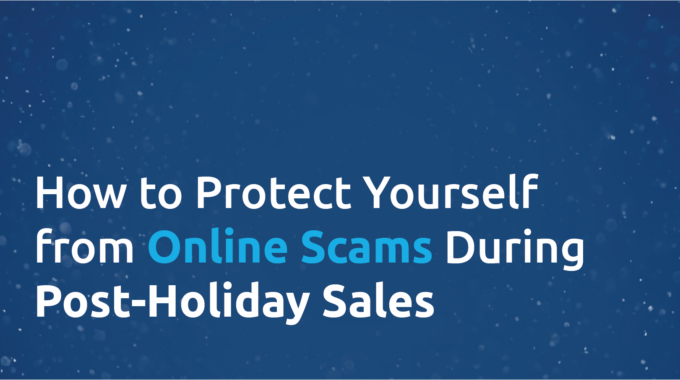
The biggest holiday shopping season of the year has ended, but nearly half of Americans still intend to participate in post-holiday sales, taking advantage of lower prices as we move forward into the new year– motivated to get a bargain and take advantage of limited-time offers. Unfortunately, post-holiday sales are often a hotspot for online scams.
Recent research by NordVPN has shed some light on a concerning trend– approximately 33 million Americans have fallen victim to online shopping scams during sales events. Cyber scams are a growing threat, especially during the post-holiday sales period, but with some knowledge and preventative steps in place, you’ll be able to take advantage of the great deals without exposing your personal information to potential scammers.
An alarming rise in online shopping scams
Recent survey data reveals a disturbing upstick in online shopping scams. Approximately 40% of Americans have encountered fraudulent activities of some kind in 2023– a 3% increase from 2022. Post-holiday sales events are an especially important time to stay vigilant as a consumer.
Consumer intentions and vulnerabilities
Despite growing awareness of online security, a staggering 87% of bargain hunters are willing to share personal details for a better deal. The NordVPN survey highlights that 48% of Americans plan to participate in post-holiday sales, which emphasizes the need for even higher cybersecurity awareness and security measures.
Adrianus Warmenhoven’s insights
NordVPN’s cybersecurity expert, Adrianus Warmenhoven, emphasizes the risks associated with the holiday shopping season. He advises consumers to be cautious, especially if an offer seems to be too good to be true, or if a website is requesting excessive personal information. With 33 million reported victims, we can’t overstate the importance of prioritizing cybersecurity.
Five ways to protect yourself from online shopping scams
1. Only provide necessary information. Limit the information you share to what is essential for the transaction. Legitimate websites will only request the details needed to process your order.
A seller that requests a social security number, any information about your workplace, or your personal identification number (PIN) is most likely engaging in fraudulent activity. There’s no reason to provide these details during an online ecommerce transaction.
2. Check the URL for typosquatting. Keep an eye out for fraudulent websites with URLs similar to well-known brands. Watch out for typos, and if there’s any doubt at all, search for the company’s website manually.
3. Avoid public Wi-Fi for online shopping. Public Wi-Fi networks are vulnerable to hacking. If using public Wi-Fi is unavoidable, consider using a VPN to encrypt your connection and protect your data.
4. Utilize tools for protection. Hackers use AI to automate attacks, but consumers can also leverage tools for defense. You can utilize software to identify suspicious webpages, helping you to avoid potential scams.
5. Regularly monitor bank statements. Stay vigilant by monitoring your bank statements for any suspicious transactions. This proactive approach allows you to respond quickly to potential scams.
Don’t forget about Facebook Marketplace!
Anyone who’s recently used Facebook Marketplace is probably aware that there are plenty of scammers on there waiting to take advantage of you and gain your personal information. If you’re hunting through Facebook Marketplace to buy or sell unwanted gifts, we’d highly recommend being vigilant and skeptical.
A listing offering a product at a price that’s significantly lower than retail price or market average, it’s a red flag. A deal that seems too good to be true probably is.
If a seller is reluctant to provide additional details or specifics about the item, answer your questions, or communicate through the platform, it’s likely a warning sign of a scam.
For example, if a seller tries to get you to text them or communicate through an app like WhatsApp, it’s likely a scam– there’s no valid reason why they can’t communicate via the Messenger app.
A seller that has an incomplete or generic Facebook profile may also be a scammer, with a profile that’s recently created or has limited activity– so it often helps to trust your gut. If something doesn’t seem right about the conversation, or if something seems a little too good to be true, it’s a good idea to follow your instincts and find another buyer or seller.
An extra-risky time of year
Stay informed about the latest trends and understand potential vulnerabilities. This is important because implementing the recommended security measures helps you to safeguard your online shopping experience.
Remember: a secure online experience begins with awareness and proactive steps to protect your personal information.
If your goal is to increase your cybersecurity in the new year, choose Speros for your business technology, managed IT services, and cybersecurity needs! Schedule a consultation today to get started.
